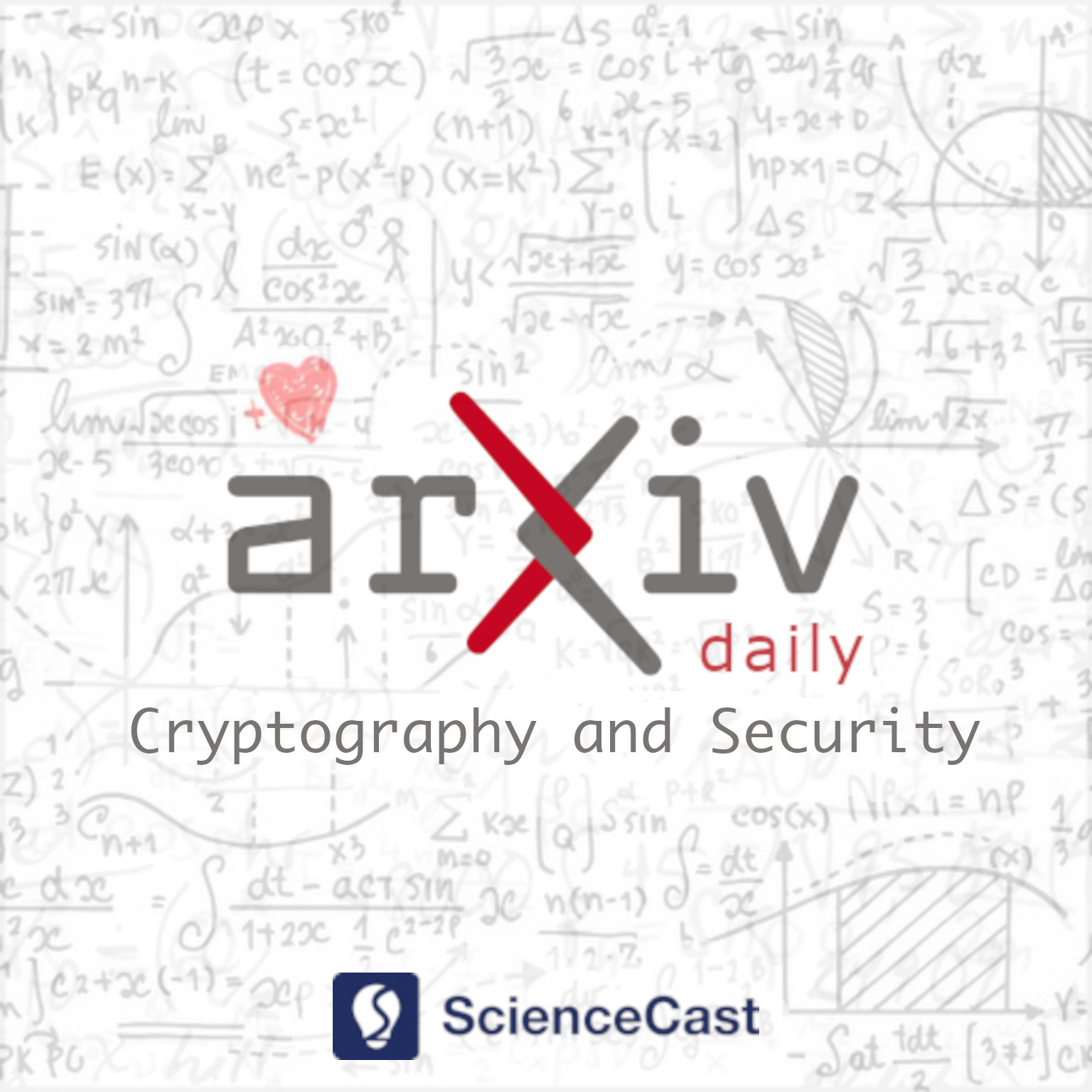
Cryptography and Security (cs.CR)
Mon, 14 Aug 2023
1.Security Analysis of Filecoin's Expected Consensus in the Byzantine vs Honest Model
Authors:Xuechao Wang, Sarah Azouvi, Marko Vukolić
Abstract: Filecoin is the largest storage-based open-source blockchain, both by storage capacity (>11EiB) and market capitalization. This paper provides the first formal security analysis of Filecoin's consensus (ordering) protocol, Expected Consensus (EC). Specifically, we show that EC is secure against an arbitrary adversary that controls a fraction $\beta$ of the total storage for $\beta m< 1- e^{-(1-\beta)m}$, where $m$ is a parameter that corresponds to the expected number of blocks per round, currently $m=5$ in Filecoin. We then present an attack, the $n$-split attack, where an adversary splits the honest miners between multiple chains, and show that it is successful for $\beta m \ge 1- e^{-(1-\beta)m}$, thus proving that $\beta m= 1- e^{-(1-\beta)m}$ is the tight security threshold of EC. This corresponds roughly to an adversary with $20\%$ of the total storage pledged to the chain. Finally, we propose two improvements to EC security that would increase this threshold. One of these two fixes is being implemented as a Filecoin Improvement Proposal (FIP).
2.Secure and Dynamic Publish/Subscribe: LCMsec
Authors:Moritz Jasper, Stefan Köpsell
Abstract: We propose LCMsec, a brokerless, decentralised Publish/Subscribe protocol. It aims to provide low-latency and high-throughput message-passing for IoT and automotive applications while providing much-needed security functionalities to combat emerging cyber-attacks in that domain. LCMsec is an extension for the Lightweight Communications and Marshalling (LCM) protocol. We extend this protocol by providing not only authenticated encryption of the messages in transit, but also a group discovery protocol inspired by the Raft consensus protocol. The Dutta-Barua group key agreement is used to agree upon a shared symmetric key among subscribers and publishers on a topic. By using a shared group key, we reduce the key agreement overhead and the number of message authentication codes (MACs) per message compared to existing proposals for secure brokerless Publish/Subscribe protocols, which establish a symmetric key between each publisher and subscriber and append multiple MACs to each message.
3.Towards a Cloud-Based Ontology for Service Model Security -- Technical Report
Authors:Mohammed Kharma, Ahmed Sabbah, Mustafa Jarrar
Abstract: The adoption of cloud computing has brought significant advancements in the operational models of businesses. However, this shift also brings new security challenges by expanding the attack surface. The offered services in cloud computing have various service models. Each cloud service model has a defined responsibility divided based on the stack layers between the service user and their cloud provider. Regardless of its service model, each service is constructed from sub-components and services running on the underlying layers. In this paper, we aim to enable more transparency and visibility by designing an ontology that links the provider's services with the sub-components used to deliver the service. Such breakdown for each cloud service sub-components enables the end user to track the vulnerabilities on the service level or one of its sub-components. Such information can result in a better understanding and management of reported vulnerabilities on the sub-components level and their impact on the offered services by the cloud provider. Our ontology and source code are published as an open-source and accessible via GitHub: \href{https://github.com/mohkharma/cc-ontology}{mohkharma/cc-ontology}
4.Reinforcing Security and Usability of Crypto-Wallet with Post-Quantum Cryptography and Zero-Knowledge Proof
Authors:Yathin Kethepalli, Rony Joseph, Sai Raja Vajrala, Jashwanth Vemula, Nenavath Srinivas Naik
Abstract: Crypto-wallets or digital asset wallets are a crucial aspect of managing cryptocurrencies and other digital assets such as NFTs. However, these wallets are not immune to security threats, particularly from the growing risk of quantum computing. The use of traditional public-key cryptography systems in digital asset wallets makes them vulnerable to attacks from quantum computers, which may increase in the future. Moreover, current digital wallets require users to keep track of seed-phrases, which can be challenging and lead to additional security risks. To overcome these challenges, a new algorithm is proposed that uses post-quantum cryptography (PQC) and zero-knowledge proof (ZKP) to enhance the security of digital asset wallets. The research focuses on the use of the Lattice-based Threshold Secret Sharing Scheme (LTSSS), Kyber Algorithm for key generation and ZKP for wallet unlocking, providing a more secure and user-friendly alternative to seed-phrase, brain and multi-sig protocol wallets. This algorithm also includes several innovative security features such as recovery of wallets in case of downtime of the server, and the ability to rekey the private key associated with a specific username-password combination, offering improved security and usability. The incorporation of PQC and ZKP provides a robust and comprehensive framework for securing digital assets in the present and future. This research aims to address the security challenges faced by digital asset wallets and proposes practical solutions to ensure their safety in the era of quantum computing.